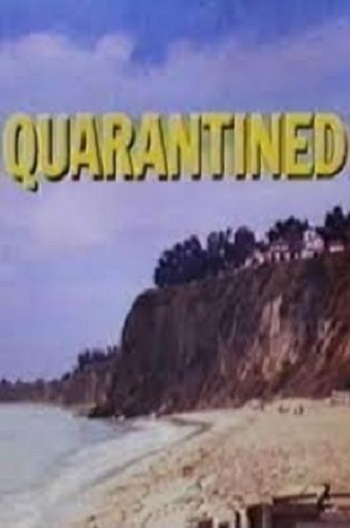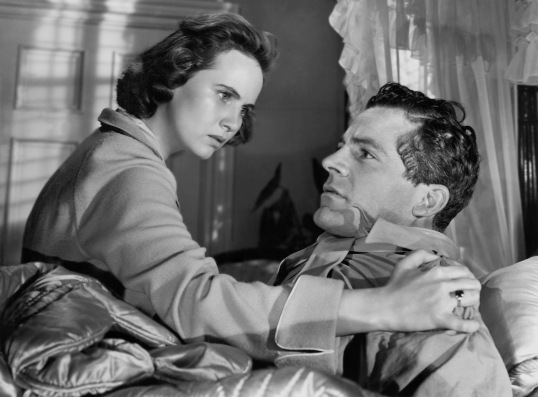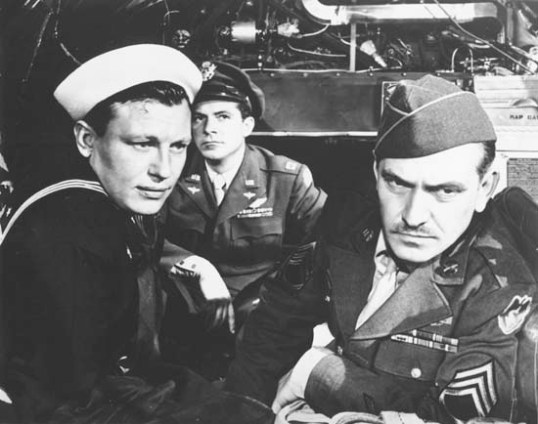Welcome to Retro Television Reviews, a feature where we review some of our favorite and least favorite shows of the past! On Sundays, I will be reviewing the made-for-television movies that used to be a primetime mainstay. Today’s film is 1970’s Quarantined! It can be viewed on YouTube!
The John C. Bedford Clinic sits atop a cliff overlooking the ocean. Though it may be a small hospital, it’s also widely respected. The clinic was started by John Bedford (John Dehner) and the majority of its employees are related to him. His three sons — Larry (Gary Collins), Bud (Gordon Pinset), and Tom (Dan Ferrone) — are all doctors and they all work at the clinic. Bud’s wife, Margaret (Susan Howard), is a psychologist and she also works at the clinic, encouraging the older patients not to give up hope in their twilight years. John Bedford is a stern taskmaster and his youngest son, Tom, resents always having his father and his older brothers staring over his shoulder. John and Larry explain that they are simply treating Tom the way that they would treat any new doctor. Tom isn’t so sure.
When the Bedfords aren’t hanging out in the tasteful ranch house that sits next to the clinic, they’re checking on their patients. As Quarantined opens, they’ve got quite a few to deal with. The most famous is Ginny Pepper (Sharon Farrell), a film star who has come to the clinic because she’s been suffering from back pain. Larry quickly diagnoses her as suffering from kidney failure and announces that she’s going to need to get an immediate transplant. Ginny is not happy to hear that and spends most of her time trying to make both Larry and Nurse Nelson (Virginia Gregg) miserable. Of course, it eventually turns out that Ginny’s not so bad.
Meanwhile, Margaret attempts to cheer up a dying old man named Mr. Berryman (Sam Jaffe) and an eccentric man named Wilbur Mott (Wally Cox) hangs out in the hospital hallway. Martha (Terry Moore) and Lloyd Atkinson (Madison Arnold) are at the hospital to visit their son, Jimmy (Mitch Vogel). Unfortunately, while in Jimmy’s hospital room, Lloyd suddenly collapses and subsequently dies. John takes one look at Lloyd and announces that Lloyd might have Cholera and, as a result, no one can leave or enter the hospital until the test results come back.
In other words, the John C. Bedford Clinic is …. QUARANTINED!
If you’re thinking this sounds a little bit dull …. well, you’re not wrong. Quarantined has a 73-minute running time and a large cast but it really does just feel like an episode of a not particularly interesting medical drama. It wouldn’t surprise me to discover that this movie was actually meant to serve as a pilot for a show that would have followed day-to-day life at the clinic. Each member of the Bedford family is given a hint of characterization, just enough to suggest what type of situations they would get involved in on a weekly basis. Larry was the straight shooter who was dedicated to saving lives. Bud was the well-meaning middle child while Margaret was the one who encouraged the men to talk about their feelings. Tom was the idealistic but impulsive youngest child. John was the wise patriarch. They’re all kind of boring.
The same can be said of Quarantined as a movie. As directed by Leo “Father of Sean” Penn, the movie promises a lot of drama but it never really delivers and there’s something rather annoying about how casually John announces that no one is allowed to leave the clinic. He even calls the police and has them set up road blocks around the clinic. On the one hand, John is doing the right thing. No one wants a cholera epidemic. On the other hand, everyone’s so quick to accept that idea of John being a benign dictator that …. well, one can only imagine what a pain in the ass the Bedfords would have been during the COVID era.
As far as I know, there was never a TV show about the Bedford family and their clinic on a cliff. Personally, I’m okay with that.









